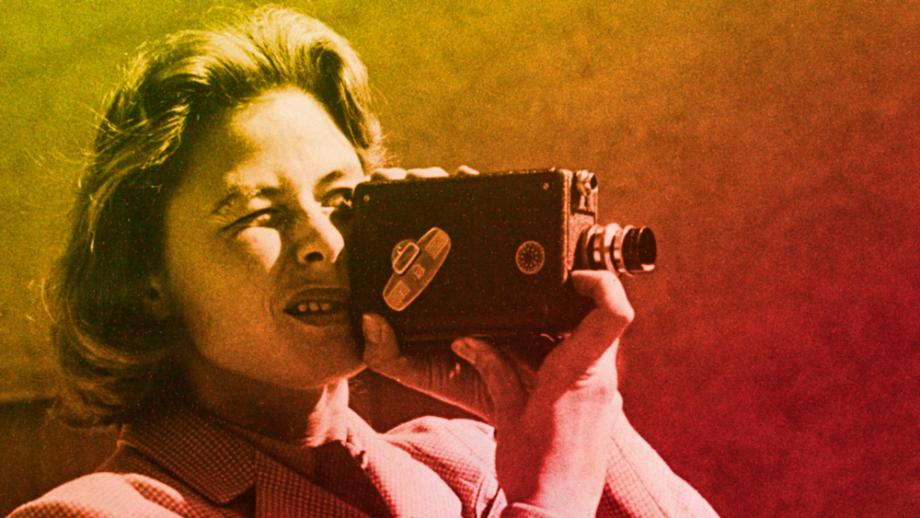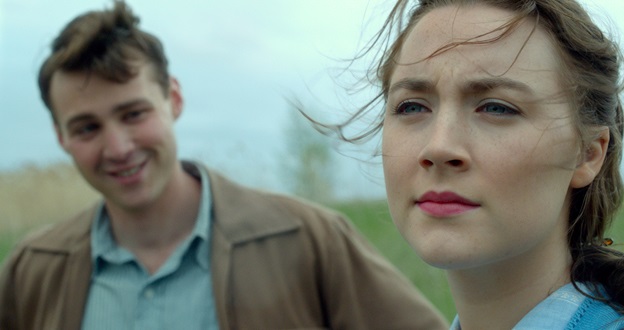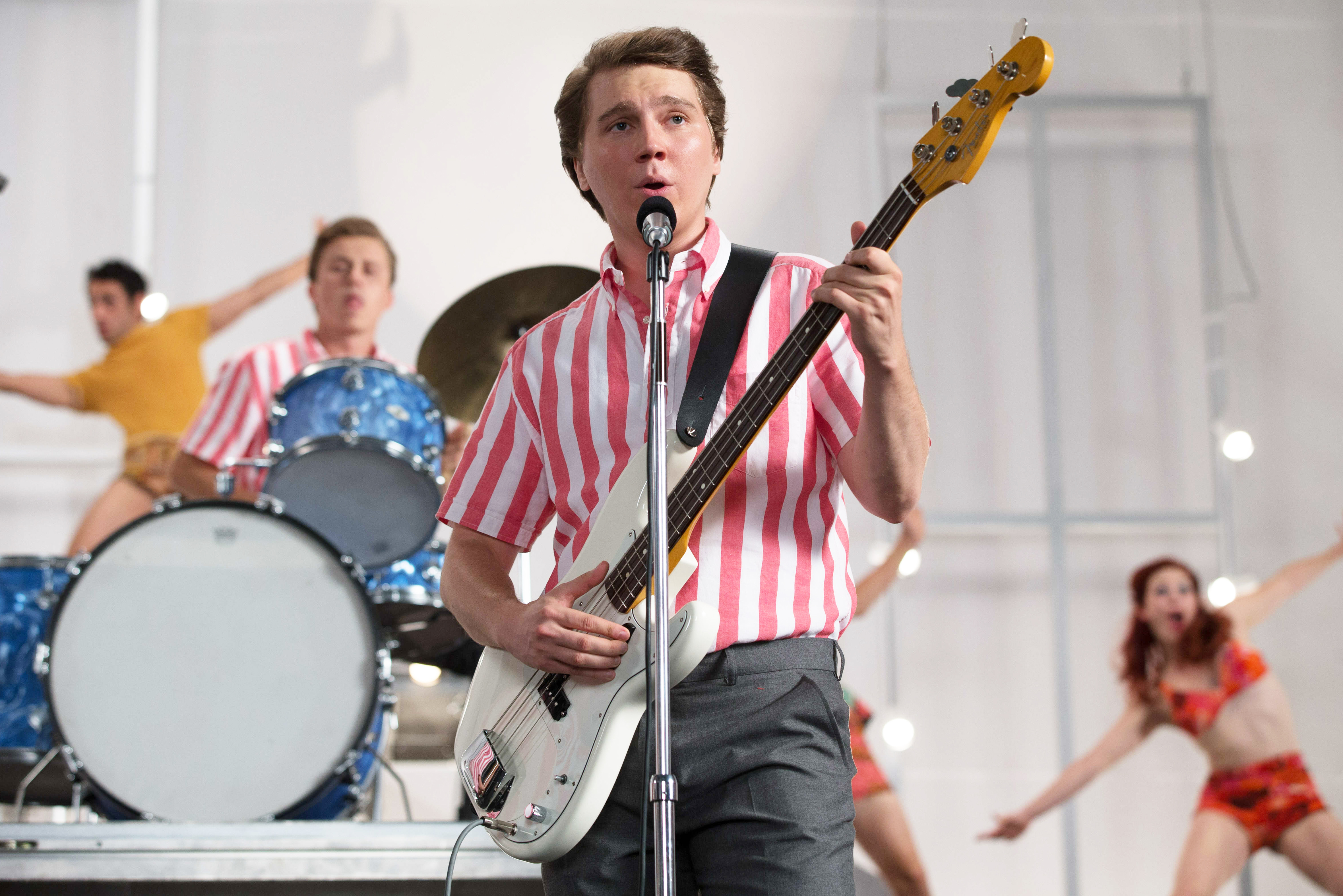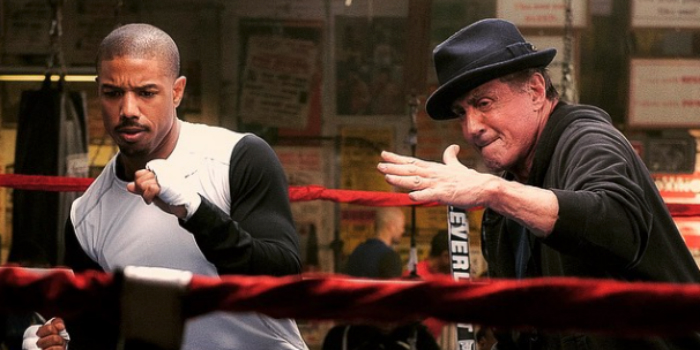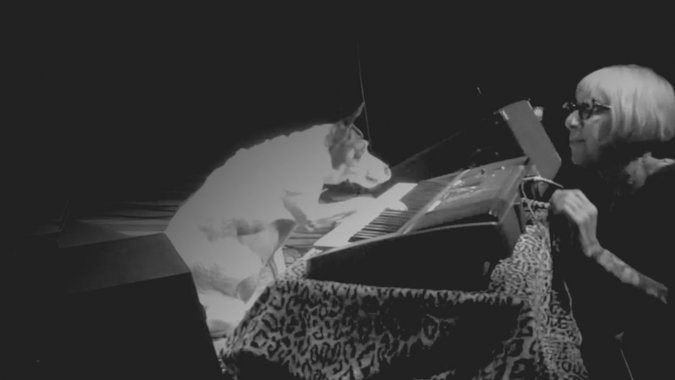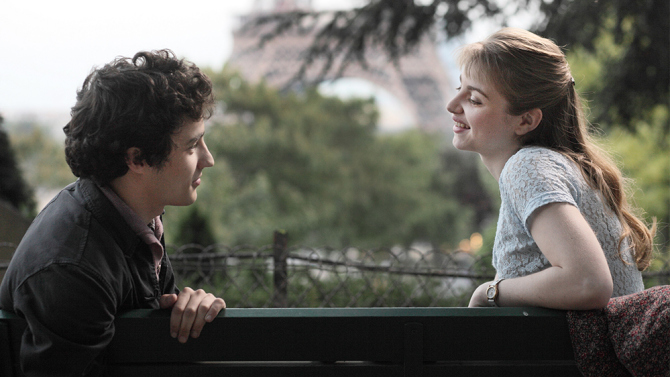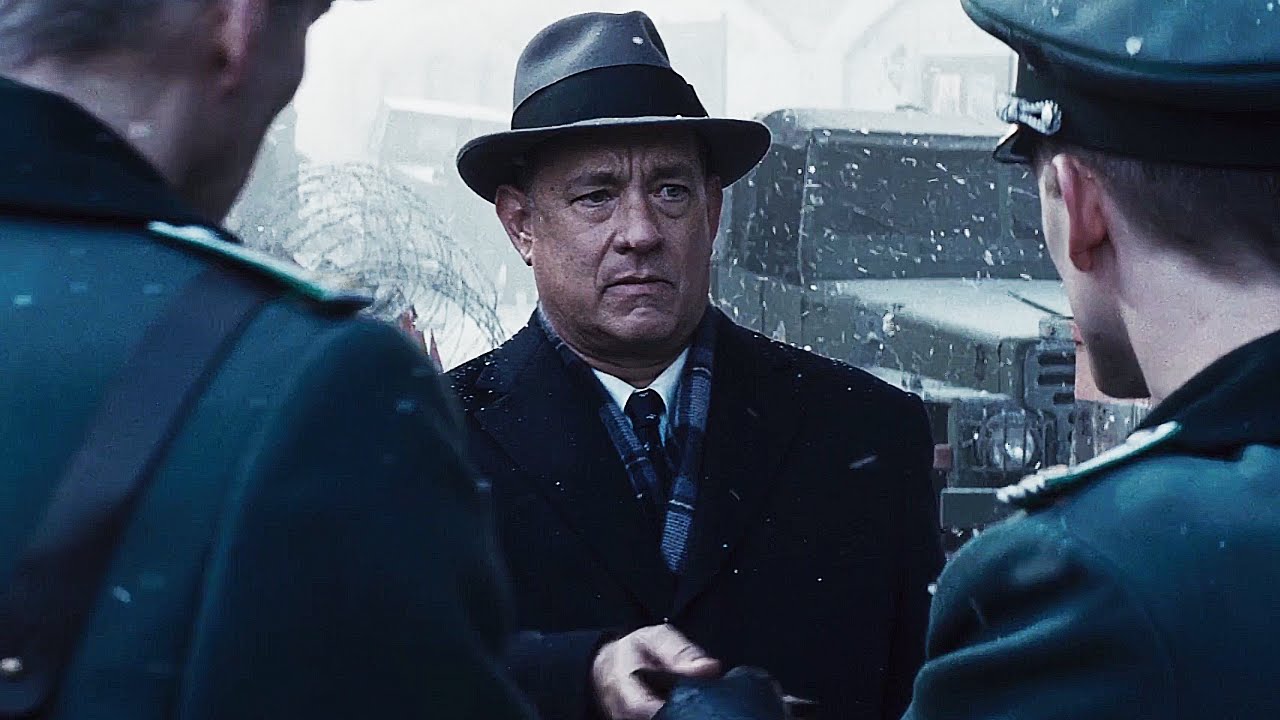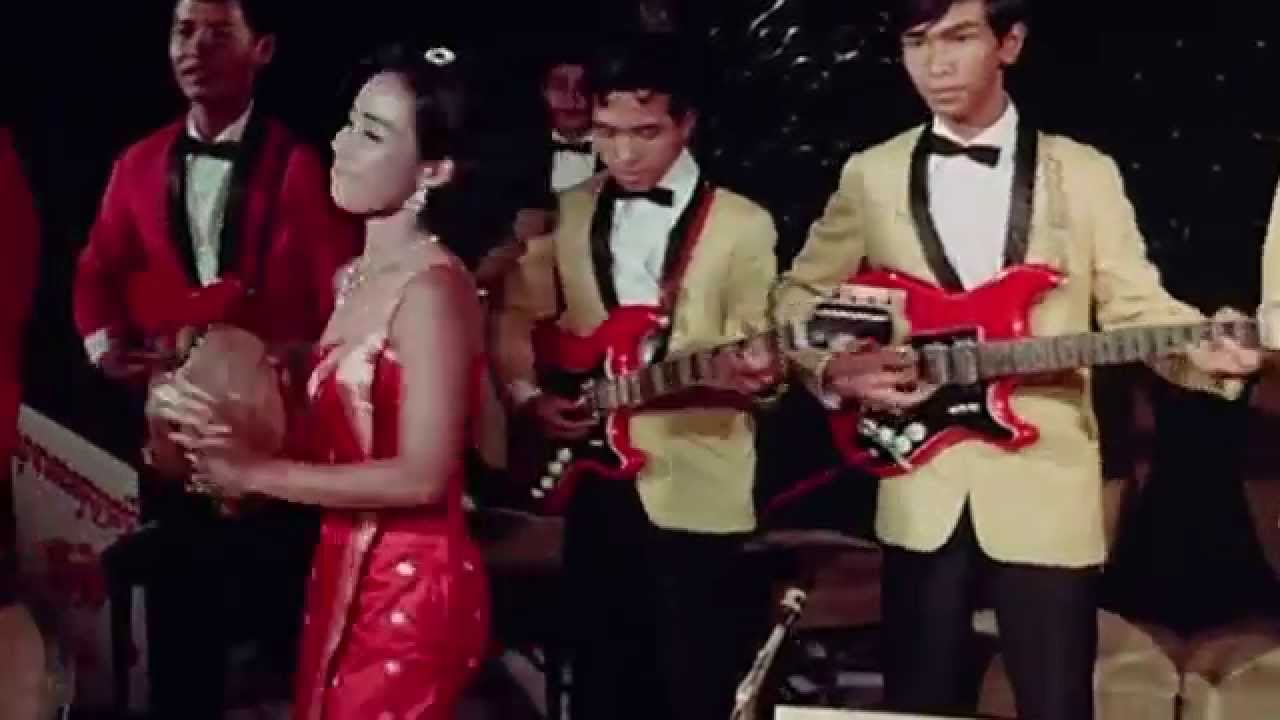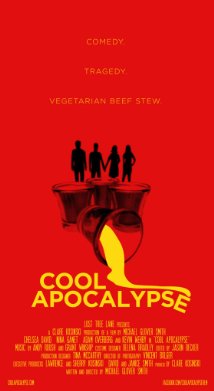
I was able to examine 20 films, from 19 different countries, playing at the upcoming 19th Chicago European Union Film Festival, which runs at the Gene Siskel Film Center from March 4 through 31. The fest seems particularly relevant at a time when the right-wing in Europe contests the very notion of a European Union itself. Many films opened a window on working-class life: this is a portrait of a European Union still reeling from the fallout from the debt crisis, which manifests as unemployment and the overall sense that money's too tight to mention. Still, many of these films revolve around acts of fellowship, even in the face of harsh economic times. I noticed a theme of the ongoing danger of Balkanization--of seeing others as subhuman--in all the forms it takes. It struck me, as well, how many of these films are very personal works. In the majority of cases, these directors wrote, or at least co-wrote, their films. Here's my take, listed more or less in the order in which I watched them. I've placed an asterisk by the ones I especially liked. Check the Siskel's website for showtimes.
The Girl King
Malin Buska gives a lusty performance as Kristina of Sweden, nonconformist and lifelong lover of books and art, in this briskly-edited biopic from Mika Kaurismaki (Finland, 2015). This tragic tale builds a rousing head of steam after finding its legs. The only heir to the king, whip-smart, proto-feminist Kristina was crowned at the age of six and began to rule when she turned 18 in 1644. Cheerfully blasphemous, she would rather bandy sabres with her suitors (Lucas Bryant, Francoie Arnaud) than marry them. Presently, she falls in love with a young apple-cheeked maiden (Sarah Gadon). After corresponding with her hero Descartes (Patrick Bauchau) about matters of the heart, she brings him to court. In a squirmy scene, he carves the pineal gland out of a cadaver’s skull, positing it as “the root of the emotions.” Tre Konor castle is just one dramatic, colorful setting for palace intrigue and steamy affairs. (102 minutes)
*I Don't Belong Anywhere: The Cinema of Chantal Akerman
Marianne Lambert's documentary (2015, Belgium) is an illuminating look at the work and life of a true original, who died last year by suicide. Seeing it in conjunction with "No Home Movie" is poignant and revelatory. It marshals clips from her best-known film, "Jeanne Dielman, 23 Commerce Quay, 1080 Brussels," as well as less celebrated works like "Je Tu Il Elle" (1975), with its frank scenes of lesbian sex; "Les Rendezvous d'Anna" (1978), starring Aurore Clement (who is interviewed); "A Couch in New York" (1996), a rom-com starring William Hurt and Juliette Binoche; and "Sud" (1999), which trains a camera down the road over which white supremacists dragged a black man to death. Akerman confides, movingly, that she later felt slightly guilty about “Dielman”’s youthful critique of her mother's homemaker existence, for leaving no room for the side of her mother that took piano lessons after escaping from Nazi Poland. (68 minutes)
*No Home Movie
The final work from Chantal Akerman (2015, Belgium) interweaves interviews with her ailing mother, a survivor of Auschwitz, with footage of the undulating hillocks of the desert of Israel, taken from a train. "Mommy, tell me a story," Akerman says, by way of attempting to get her dying mother to stay awake. Her very long takes acquaint us with the geography of her mother's apartment. Akerman is interested in tensions, both spatial and rhythmic, and textures. Visual textures--hard reflective surfaces; the blacks and splashes of color her digital camera finds in shadows and windows; the masking effects of walls and other vertical forms. Aural textures--the roar of the wind in the desert rushing over her mic, the hum of the seashore, the thrum of the train. The film is a moving quest for identity, especially when seen in conjunction with "I Don't Belong Anywhere." (113 minutes)
Therapy for a Vampire
A droll vampire farce (2014, Austria). Writer/director David Ruhm ("'El Chicko' - der Verdacht," "Der Umweg," "The Escape") imagines two intertwining couples in 1932, "somewhere near Vienna." One is human: a spunky, trousers-wearing woman (Cornelia Ivancan) and her boyfriend, a painter (Dominic Oley) who works for a certain iconic psychoanalyst of the day (Karl Fischer), transcribing the doctor’s patient’s fantasies into sketch form. The other couple happens to be vampire: a count who appears in the analyst's office seeking treatment (Tobias Moretti)--and who comes to believe that the painter's girlfriend is the reincarnation of his long-lost love--and his vain, amoral wife (Jeanette Hain). Enraged at not being able to see her own reflection, she retains the painter to paint her visage. Complicating the Jeunet-like scenario is the count's ghoulish henchman (David Bennent), also smitten with the painter's girlfriend. The witty script is a spoof of Freudian theory. (88 minutes)
Family Member
A moving, timely story from Cyprus (2015), this drama by writer/director Marinos Kartikkis (“By Miracle,” “Honey and Wine”) is anchored by a sensitive performance from Yiola Klitou as a mother trying to hold onto a middle-class existence along with her husband (Christopher Greco), teenage daughter, and prepubescent son. The mini-mart they own is feeling the pinch: for customers, money’s too tight to mention. So when her father dies, she makes the decision to keep his death a secret so they can keep collecting his pension. Trouble arises when the Social Security office wants to meet dad. Desperate, they enlist an old man they catch shoplifting (Fivos Georgiades) to play him. As he begins to fill the role, helping the kids with life lessons, he becomes beloved, and we learn his tragic tale. The film is humane and understated, with deep reserves of feeling under a surface of quiet desperation. (104 minutes)
SHAB- To My Little Turtle
Directed by Martin Bonnici, this is a beautiful sun-drenched short from Malta (2015). As the sun bursts over the Mediterranean, a happy elderly man (Joe Cortis) and woman (Cettina Scicluna) bask on the edge of a bluff. Then she is gone, and he never finished building the steps to the heavens she wanted. The man enlists his grandson to help him finish the steps, partly as penance for crushing the boy’s mouse, Bruce, after catching Bruce jeopardizing Grandma’s china. It's a tearjerker, but undercut by the vinegar of that kind of misguided violence, ironically borne of love--the boy’s dad pushes his own father down for putting his boy at risk by the cliff’s edge. In just a few minutes, we get a sense of three generations of anger, and love, passed down the line. (14 minutes)
*Hearts Know * The Runaway Brides
On one level, Kris Kristinsson’s curious documentary-drama (Netherlands, 2015) is an invigorating music film, a survey of traditional music from around the world (chants from Iceland, gnawa from Morocco, religious galing music from Indian Tibet, ximbomba from Spain, koto music from Japan, Bach from Germany). On another, it is a storehouse of gorgeous, mysterious imagery, a fantasia on freedom--of women casting off their chains. 19 actresses portray runaway brides, while ordinary people spin stories interpreting her reason for running. A universal trope, from Thailand to Bulgaria, South Africa to Ethiopia, the runaway brides make an inherently dramatic image, in white or red. The stories are revealing of the various cultures, including Kristinsson’s own tale of the tumultuous marriage of his Dutch father to his Icelandic mother. Some may be frustrated that the through-line is thematic rather than narrative, but once you’re on its wavelength it's joyful and exhilarating. (72 minutes)
*Home Care
Writer/director Slavek Horak's debut feature (Czech Republic, 2015) is very funny, a droll comedy/drama about a compassionate, gentle home-care nurse looking after the characters populating a rural village (Alena Mihulova). After a comic-cum-tragic motorcycle accident involving a "frog underpass," she learns she has pancreatic cancer and only has half a year to live. Comic-cum-tragic is, in fact, the tone, and it’s a deft interplay. Vivid performances include Bolek Polivka as her selfish bear of a husband, full of joie de vivre, and Tatiana Vilhelmova as the friend who counsels New Age remedies. In a way the film is about women (nurturers) and men (selfish). She learns to be a little less nice, a fun twist. Its gentle moments of irony don't startle so much as make you chuckle. I won't forget this bemused, beatific, open-faced woman, always game, who is happy so long as she has made others happy. (87 minutes)
Free Entry (One Day of Betty)
Yvonne Kerekgyarto's feature is a pleasure (Hungary, 2014), a story about friendship in which two teenage girls take in a Lollapalooza-like music festival in Budapest, the Sziget, of which we get plenty of essentially documentary footage. Luca Pusztai plays the shy, introverted one; Agnes Barta her outgoing friend. The teens' peregrinations and vicissitudes involve the usual: boys, alcohol, pot. I had the sinking feeling we were in for a cautionary tale, and nervously awaited the inevitable trouble. And there are some near misses—including a drunken fall in the river, vividly filmed, that certainly could have been fatal. Yet in the end this story says something less fashionable, but refreshingly truthful: that youthful “gin and sin” experiences can be just pleasurable, and getting away with them is part of the fun of being young and growing up. I enjoyed this sweet portrait of the bond between the two girls. (70 minutes)
Glassland
Writer/director Gerand Barret’s intense feature (Ireland, 2014) was awarded a Special Jury Prize at Sundance, and while it’s a bit indie-drama-by-the-numbers at times, it’s well-observed. It is full of tender, if melodramatic, touches, the story of a cab driver (Jack Reynor) in economically depressed Dublin, a good guy in a not-so-good world. His life revolves around caring for a mother committing suicide by drink (Toni Collette), playing video games with his man-child best friend, and visits with his younger brother, who has Down's Syndrome. Barret has a tendency to go for it: his direction coaxes raw performances. In one scene of a heated argument in a car filmed from the backseat, the camera even bounces with the car. The cabbie needs money to get his mother into detox before her liver goes out, which leads to a truly suspenseful finale which hints artfully at a side of the underground economy so dark that the camera swings away from it. (93 minutes)
*Sunset Song
Set in Scotland in the years before WWI, Terrence Davies's exquisite, soulful, painful adaptation of the novel by Lewis Grassic Gibbon (UK, 2015) is a feast for the emotions and the eyes. Davies's prayerful compositions, with their palettes of diffuse candle light, are worthy of the Dutch masters, every shot a still-life. Agyness Deyn is the warm-blooded, reflective, gangly daughter of a monstrous farmer (a scary Peter Mullan: who else can rage and roar, yet still register such rough tenderness and soul?). After his death, she enjoys a happy life with her kind husband (Kevin Guthrie)--there is an enchanted scene in which Deyn sings a wedding song. In fact, the film brims with stirring songs and the music of language and voices. However, as if in a bad dream, after being conscripted her husband transforms into a monster himself. Davies is an auteur in the classical sense, an heir to Ophuls and Ford. You can almost see his elegant longhand written across the screen. Time is always receding, as the clocks tick-tock in the parlors, while the land is a constant. She is one with it, in its beauty and harshness, from first scene to last, with an uncanny sense that the strut-and-fret of humans across its stage is but a moment, already receding. By the end we've had a picture of a whole woman, a rare thing. (136 minutes)
*Aferim!
A brutal, unforgettable, beautiful vision from director Radu Jude, who co-wrote with Florin Lazarescu (Romania, 2015). With a fine sense of irony it takes on the subject of Romani (or "gypsy") slavery. The setting is Wallachia, 1835, and the plague is on the land. Two rather comic characters--a blustering, pedantic constable, unduly fond of aphorisms (Teodor Corban), and his pubescent son (Mihai Comanoiu)--cross the country on horseback, searching for a runaway gypsy slave (Toma Curzin), accused of stealing from the boyar--though his real crime, it emerges, is diddling his wife. Marius Panduro’s black and white photography is gorgeous. In an absurdly humorous way, the characters are philosophical about police brutality, racism, and subjugation of women. In one scene, a priest lets loose with a diatribe against various ethnic groups so drawn out it becomes comic. The boy, following his instinct for compassion, almost convinces his father to release the slave. When the constable attempts to put in a few words on the slave’s behalf, asking for mercy, the boyar’s cruel justice is disturbingly unshakeable. (106 m)
*The Fencer
An uplifting, old-fashioned feel-good movie, Klaus Haro’s drama (Estonia/Finland, 2015) is the story of an exacting, sad-eyed teacher (a soulful Märt Avandi, looking a bit like a Byzantine icon). In the early 50s, he turns up at a rural school in Estonia and creates a fencing program, though Stalinist-hack bureaucrats regard the sport as “a vestige of feudalism.” Meanwhile, he flees a secret in his past. (When that pounding comes at the door, it means one thing: secret police.) Though his girlfriend (Ursula Ratasepp) begs him never to return to Leningrad, he resolves to bring his rag-tag crew, complete with an adorable little girl, to the big city to compete at the All-Soviet fencing tournament, where they are wildly outmatched. Well, what do you think is going to happen? Formulaic but irresistible, the film contains echoes of everything from "Mr. Holland's Opus" to "The Karate Kid." While it's cut from quite familiar cloth, I don’t complain when the resulting suit is this well-made. (94 m)
Forbidden Films
This thought-provoking documentary by Felix Moeller (Germany, 2014) examines “explosive” films, figuratively and literally: movies made in Germany during the Third Reich (1933- 1945), Kept in a reinforced bunker because the old nitrate stock could go up anytime, the films’ ideas are just as inflammatory. Some are vulgar propaganda. Others are well-made entertainments, and in some ways all the more insidious. In today’s Germany, 40 movies remain prohibited except for special screenings and showings. We watch removed scenes and attend banned film fests in Germany, as well as France and Israel (where, ironically, these materials are not proscribed). The post-film debates are as lively as you might imagine. Should works like Veit Harlan's "Jud Suss," Erich Waschneck’s “The Rothschilds,” Karl Ritter's "Stukas," Wolfgang Liebeneiner's pro-euthanasia "I Accuse," Gustav Ucicky's anti-Slavic "Homecoming,” and Fritz Hippler’s “The Eternal Jew” be banned? As a free speech guy, my strong opinion is, of course not. They must be available for examination and criticism. Still, we hear from all kinds of voices, from scholars to directors to ex-Neo Nazis. (94 m)
Modris
Writer/director Juris Kursietis' absorbing drama (Latvia, 2014) tells, in a realist key, the inexorable story of an almost nonverbal teenager with a pugilist's face. On the cusp of turning 18, he is pulled towards prison by poor decisions, bad luck, and bureaucracy. That passive tense is appropriate to this character. In an opening scene, the camera pulls back to establish the town, grey, cold and drab: these are his parameters. While he is a talented Banksy-style graffiti artist, he’s aimless. Trouble follows him. He sells his mother's heater to get money to play the slots, and, fed up, she has him arrested. His peregrinations include a half-hearted search for his father, who has been in his life only as myth--his mom says he's in prison. He stumbles upon moments of cruelty, but also beauty and grace--a choir, a country/western dance (where we get to hear "Will the Circle Be Unbroken" in Latvian). However, these can neither faze nor save him. He takes the world as it comes, until it all becomes a bit much. (97 m)
*Wondrous Boccaccio
A pleasure, written and directed by Paoli Taviani and Vittorio Taviani (Italy, 2015), this is a playful, vivid adaptation of a handful of tales from Boccaccio's Decameron (1353). You know the basic scenario: it’s Florence in 1348, the days of the Black Death. A group of young men and women hole up and, to pass the time, they tell each other stories. Some are comic, some tragic, some just dirty jokes. The tale about the pet hawk broke my heart. Memorable imagery: ginger women in white robes frolicking in the water; an homage to Velazquez's "Las Meninas"; colorful robes evoking Rafael's frescoes; portraits of the actresses evoking Titian. The dramatic score is by Giuliano Taviani and Carmelo Travia. It’s been a long time, but I remember Pasolini's Decameron as earthier, more sexual. But then, the Tavianis take on an entirely different batch of tales. (There are 100 to choose from, after all). We humans don’t change fundamentally down the centuries, and this film is forgiving of what we are. My favorite line could also be its motto: "Try and enjoy yourselves as much as you can."
*Koza
This hushed, taut boxing movie by Ivan Ostrochovský (Slovakia, 2015), who co-wrote, seems designed to drain away every romantic Hollywood boxing trope. There is no score, the fights are shown from one stationary camera angle (when they are shown at all), and even the training sequences do not inspire. Rather, when the titular bull-headed character, a washed-up pugilist (Peter Baláz) whose name means “goat,” runs across wintry fields in parallel with the truck driven by his cynical trainer (Nikola Bongilajová), what registers is exhausted doggedness. (In this movie, the truck is actually more of an arena for the action than the ring.) He’s gone back into the ring to scrape up a few bucks for his wife's abortion. The decision not to manipulate the audience in any way--to let us decide what we make of this man--is admirable. Problem is, he has so little personality that my initial reaction was "not much." Curious, though, how draining the film of all drama does not lead to a drab experience: in the days that followed, I kept thinking about the film. Ostrochovský has real style. There are some startling images, from the unforgiving scale of the Carpathian mountains to the intimacy of the human face. He uses a distorted lens to put us right up in the “goat’s” almost fun-house mug. Draining the picture of all heroism has the odd effect of making this boxer, if not heroic, at least admirable: a loser who won't let nature’s unsmiling bleakness crush him. (72 min)
*The Measure of a Man
The heart of this absorbing realist drama, directed and co-written by Stéphane Brizé (France, 2015), is the soulful performance by Vincent Lindon as an unemployed, middle-aged family man trying to make ends meet. The unfairness of working-class life is here, but so is real happiness. It was a pleasure to see the loving family dynamic with his wife and profoundly mentally retarded son. His eyes ache with quiet desperation and worry. He is trying so hard to be patient. He is a good man, with dignity. Because he needs to provide for his family, he will bow, though we see what it costs him—but just so far. He's been part of lost labor fights in the past. He lands a job as a stop-loss security agent at a Costco-type department store, using his eyes and the store’s surveillance cameras to spot shoplifters in the act, then stand in the backroom while they are dressed down. (The camera mounted to a ceiling track that shuttles around the store makes a pretty cool tracking shot, aesthetically.) These are working-class people like him: in one case a man has tried to steal meat because he can't afford to pay for it. Nothing particularly melodramatic happens, just daily assaults on dignity that Brizé holds so long it becomes painful. The ending is at once heartbreaking and heartening: a choice for dignity. (88 m)
The Prosecutor, The Defender, The Father And His Son
Written and directed by Iglika Triffonova, this earnest drama (Bulgaria, 2015), based on a true story, is set at the International Criminal Tribunal, where Miroslav Deronjic is on trial for presiding over the massacre of Muslims (and others) at Glogova in ’92, during the Bosnia War. Triffonova’s ear for dialogue is a bit tinny, and her aesthetic could perhaps best be described as “television.” In fact, for better and for worse, this feels a bit like Law & Order: SVU goes to Europe. Acting quality ranges across the board, though Romane Bohringer and Samuel Fröler are both fine in the key roles of the prosecutor and defender, respectively. Treated as a pawn by both is a young man, a witness for the prosecution, who claims he was swept up during the war by a Serbian paramilitary group, and witnessed the defendant preside over the massacre. In 2002 the defender tracks down the boy’s parents, villagers who had assumed their boy dead (father is a Christian, mother is a Muslim), and persuades the father to come to the Netherlands with the promise of getting his boy back--though his real agenda, of course, is to clear his client. It’s a troubled, serious film about a system in which “truth” and “justice” seem to recede the more they are pursued--not least for the prosecutor and defender, both of whom chase them in good faith. It has a thoughtful subtheme about fathers and sons. The procedural format keeps it engaging, from the hills of a Bosnia to the streets of Amsterdam. (96 m)
*Chevalier
This very funny, sometimes startling comedy directed by Athina Rachel Tsangari (Greece, 2015) puts us on a private luxury yacht with six middle-aged men on a scuba-diving vacation in the Aegean. One night, over a candle-lit dinner, they decide to play a certain devilish game: a contest to prove who is "best in general." Just best, at everything: walking, breathing, sleeping. They will ruthlessly criticize each other, the way they dive, clean, eat; their bravery, manners, relationships with women, etc., adding points or subtracting demerits. The winner will wear the ring bearing the signet of the “chevalier,” a true knight among men. In its shocks, the film is like what Yorgos Lanthimos might come up with if he made a comedy, which makes sense--Tsangari produced Lanthimos’s startling "Dogtooth,” and her co-writer here, Efthymis Filippou, also co-wrote that picture. Actually, I remember Tsangari and Panos Koronis, who plays one of the divers, from their turn as a cheerfully contentious couple in that wonderful al fresco dinner-party scene in "Before Midnight." Tsangari films the interiors of the boat beautifully. Her camera style, lighting and blocking recalls Assayas. She has a nice natural way with actors, eliciting droll performances from the six, especially a very physical turn from Makis Papadimitriou as a long-suffering baby brother. The contest becomes more and more absurd. We get an eyeful when the characters take their critique of each other’s manhood--and Tsangari her satire of "bigger man" ego contests--to its logical (and graphic) conclusion. (104 m)
 Scott Pfeiffer
Scott Pfeiffer  Friday, March 4, 2016 at 12:13PM
Friday, March 4, 2016 at 12:13PM 